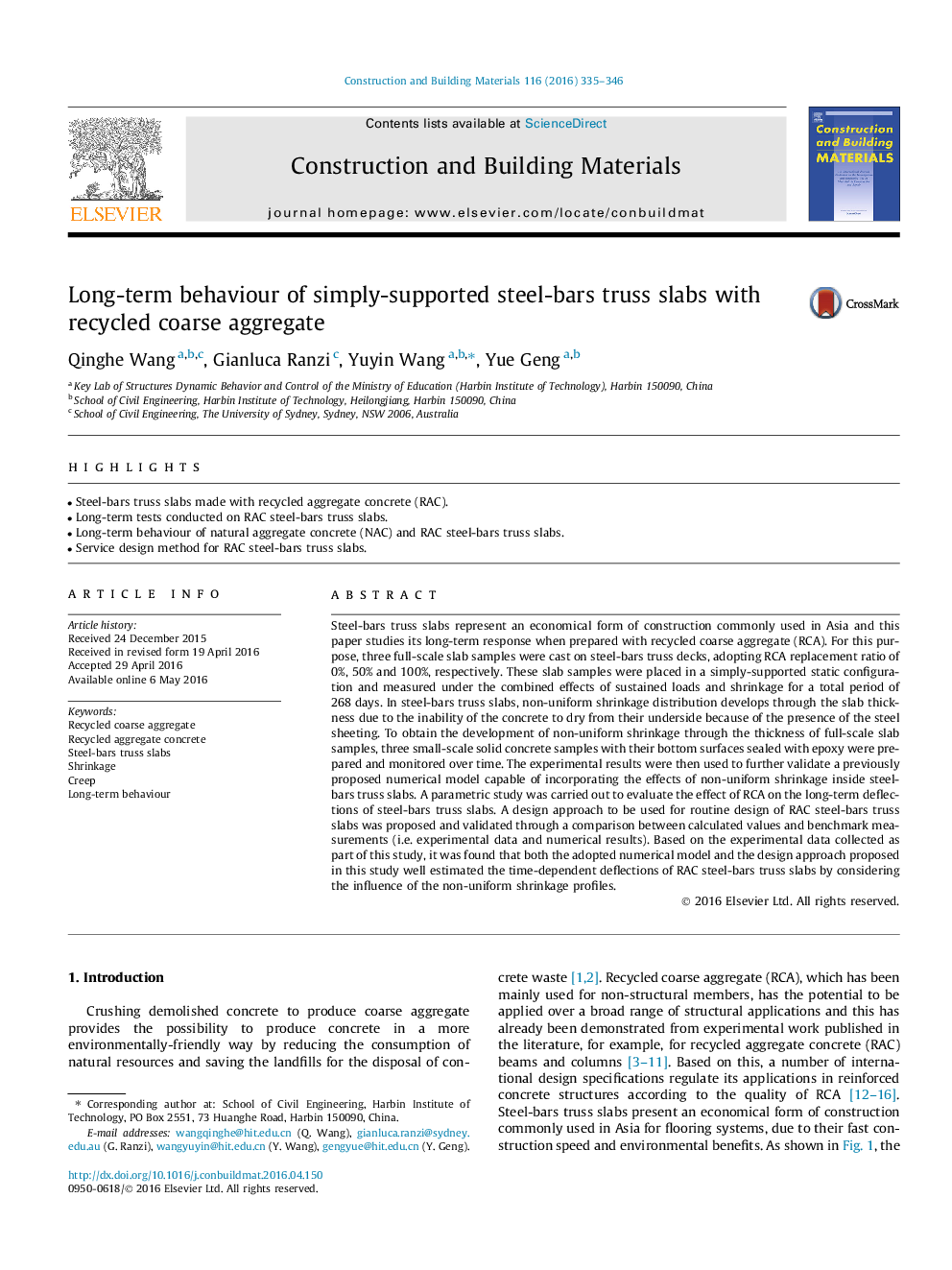| Article ID | Journal | Published Year | Pages | File Type |
|---|---|---|---|---|
| 6718813 | Construction and Building Materials | 2016 | 12 Pages |
Abstract
Steel-bars truss slabs represent an economical form of construction commonly used in Asia and this paper studies its long-term response when prepared with recycled coarse aggregate (RCA). For this purpose, three full-scale slab samples were cast on steel-bars truss decks, adopting RCA replacement ratio of 0%, 50% and 100%, respectively. These slab samples were placed in a simply-supported static configuration and measured under the combined effects of sustained loads and shrinkage for a total period of 268Â days. In steel-bars truss slabs, non-uniform shrinkage distribution develops through the slab thickness due to the inability of the concrete to dry from their underside because of the presence of the steel sheeting. To obtain the development of non-uniform shrinkage through the thickness of full-scale slab samples, three small-scale solid concrete samples with their bottom surfaces sealed with epoxy were prepared and monitored over time. The experimental results were then used to further validate a previously proposed numerical model capable of incorporating the effects of non-uniform shrinkage inside steel-bars truss slabs. A parametric study was carried out to evaluate the effect of RCA on the long-term deflections of steel-bars truss slabs. A design approach to be used for routine design of RAC steel-bars truss slabs was proposed and validated through a comparison between calculated values and benchmark measurements (i.e. experimental data and numerical results). Based on the experimental data collected as part of this study, it was found that both the adopted numerical model and the design approach proposed in this study well estimated the time-dependent deflections of RAC steel-bars truss slabs by considering the influence of the non-uniform shrinkage profiles.
Related Topics
Physical Sciences and Engineering
Engineering
Civil and Structural Engineering
Authors
Qinghe Wang, Gianluca Ranzi, Yuyin Wang, Yue Geng,
